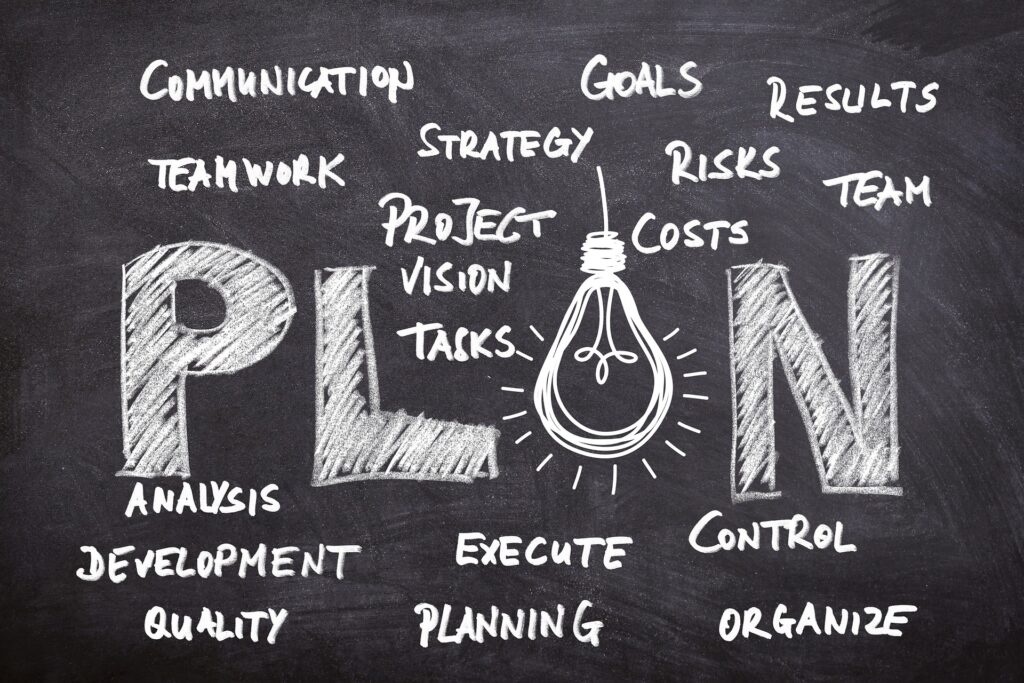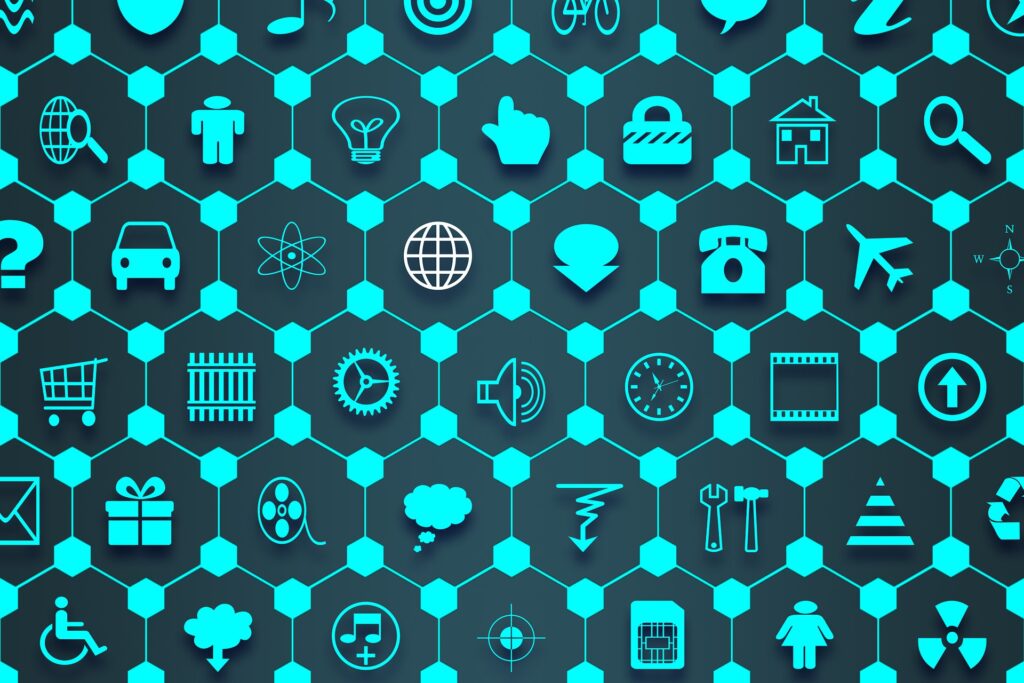
Education has changed for the better indeed! Rather than sticking to predetermined rigid systems, an increasing number of people define educational objectives and work towards them. This post discusses everything there is to Personal Education Plans; how they function, their advantages, how to come up with a personal education plan, real life examples and even strategies to beat the challenges. In particular, you will learn how the global trend of lifelong learning can be brought down to your own needs in a formulated approach.
Understanding Personal Education Plans
A Personal Education Plan is a plan for the acquisition of knowledge which focuses on the needs and aspirations of the individual rather than on the syllabus. It entails defining what has to be achieved within the stipulated time, available resources and opportunities and how it’s able to fit among other personal goals. To begin, examine your current skill level to ascertain what additional skills you want to compare out to others. One should try different approaches, such as focused online classes, workshops, mentors, and even self studying. The great thing about PEP is that no formal systems of learning are imposed so that the plan can be changed based on the interest and professional goals of a person, resulting in the personal education plan for the person being most appropriate.
What is a Personal Education Plan?
A Personal Education Plan is known as PEP which is an approach for people to reach educational and career objectives in PEP; It understands everybody will have different career paths and therefore doesn’t fit into a single structure of personal education plan as would be common. It aims to achieve goals set by the particular individual in the way an actual profession would be able to.
What are the Benefits of a Personal Education Plan?
A PEP has multiple components. First, it has an emphasis on attaining set objectives like having a career and furthering studies which are aligned with what one aspires to and any level objectives. Second, it nurtures self-determination by allowing you as an individual to be the one who looks for what is needed along the personal education plan journey and deciding on courses, books, and mentors to have as aids. What aids PEP is the possibility of tracking and assessing the situation like any other activity would need to be. Plans or journals allow one to always have an insight on what needs to be achieved and how to go about it. Hence a Personal Education Plan is essential.
Why is a Personal Education Plan important?
Humans in this century are enabled by having this tool as vital in helping them become better and further up the career ladder. The skills learned and attributes gained are something which makes individuals and the PEP cuts across industries. The importance of being able to refine and stay relevant is further a key aspect for it allows new circumstances or fresh possibilities to forge other plans for the future.
In addition, a PEP also assists in keeping you motivated and focused since you have set goals and specific reviews that will assess your progress. Furthermore, creating a Personal Education Plan means that you are ensuring growth and learning all the time which will benefit your career and personal life in the end.
A PEP is more than a roadmap; it is a device to realize one’s prospects and potential. Let us see why we should take such interest:
1. Personalized Learning that Respect the Individual
A PEP makes it easy for you to focus exclusively on what’s important to you, such as trying to get promoted, changing careers, or picking up a new skill.
2. Continued Relevance
It is normal for life to take unexpected turns and so can your learning objectives. Whether it be a new passion you’ve developed or an unexpected roadblock, a PEP is made to help you regardless.
3. Brings About Focus and Drives Commitment
Defining goals helps the learner to understand the context and purpose of what they’re learning, and when all steps are purposeful, they are more likely to stick to it.
4. Contributes to Lifelong Investment in Self
PEPs make self-development and self-improvement an ongoing process which is critical in the current world.
With a PEP, it becomes easier to orient one’s learning activities towards achieving one’s career and other goals.
5 Steps to Create an Effective Personal Education Plan
Step 1: Think Thoroughly about your Purpose and Objectives
It is ideal to begin with adequate self-configuring. Try asking yourself a few questions:
In what career or life activity do I see myself in a few years?
Try writing both short-term goals, such as enrolling in an online class for data analyzing and long-term goals, for example, trying to move to the technology industry.
Step 2: Understand where you are in the digital world – What are your work skills and knowledge?
Then, assess where you stand:
First, perform a self-analysis skills-gap audit to find out what you are good at and what you can work on.
Self-evaluate yourself as much as possible—it is a relevant starting point in such an eventuality of where and how to begin.
Step 3: Look for Available Educational Materials and Training
Here, where you have to search for the right means in relation to your learning goals. For example, investigate:
Online courses – Offers provided by such web services as Coursera, kindly suggest, begin a wide selection of online learning.
Certifications – Get accredited qualifications as they are widely accepted across jurisdictions while enhancing your cv.
Mentorships and Networks – Take advantage of relationships where knowledge can be drawn from older practitioners.
Budget Friendly Resources – Try free options like public resources such as libraries or resources that are available on the internet without having to pay a subscription.
Step 4: Designing Your Learning Roadmap
Divide your broad goals into smaller manageable goals. For instance,
If you would like to earn a living through digital marketing, make it a point to:
Look for and take an SEO basic course within four weeks.
Lend your services and handle a small project from a friend or a local firm, which you then use as part of your professional portfolio.
Obtain a certification on Google Analytics.
Utilize digital calendars, excel sheets or planners such as Trello to help manage your schedules and assignment completion.
Step 5: Re-evaluate and Adapt in Step 5
Your learning plan is always in progress and is not final. Mark your successes and re-strategize when necessary:
Utilize devices such as journals tailored for the use of applications to track progress or learning apps that ride on the internet.
Change the plans to leverage and incorporate newly discovered options which may have been undiscovered; for example a seminar.
Examples of Personal Education Plans as Templates
Example 1: Sarah, a Career Change Plan changer

Sarah, a marketer, envisioned changing over and entering the technology field in two years. Her PEP started with getting clear objectives: acquire basic programming skills, learn the basic principles of data reasoning and secure a cloud-computing certificate.
She evaluated her previous experience and recognized understanding of Excel at a primary level; however, emphasis was given to coding practices. Sarah looked for materials, opting for online courses to meet requirements of a programming introductory course, then local college for more courses on data science. As part of her learning roadmap, she aimed to finish the Python course within three months, take part in the hackathon for hands-on experience, and join any network meetups every other month for the purpose of building relevant networks. In addition, she evaluated her results on a regular basis and modified her strategy, based on specialists’ opinion acquired through Linkedin.
Example 2: James, a Hobbyist Learner
James, another engineer, a retired one this time, who believes in sustainable lifestyles, directed his PEP towards areas of permaculture and renewable energy. To begin with, he thought that knowing how self-sufficient a garden is, he can turn his backyard into one as well, and would acquire the skill to install a solar panel in his backyard. He started by measuring his experience with the concept of botany, which was rather low. He started with free information that he watched on the various videos and registered for a web-based permaculture design course. His roadmap consisted of participating in local workshops on solar energy, working on do it yourself projects like making a system of collecting rain water, and helping out in community gardens to learn. Sticking to his agenda on a monthly basis, James saw further possibilities, for example, encouraging university students to give lectures, which helped to further development of his skills.
These examples illustrate the opposite, how the PEPs, once designed, can assist people in reaching their specific educational objectives, able to learn in a linear manner but yet flexible. Adapting of the aforementioned processes and adding a personal touch will enable a PEP, more than in attaining academic aspirations, achieve desired complete self improvement.
Scenario 1: Career Advancement Anna, a project manager, has ambitions of becoming a leader in an organization. In that light, she formulates a PEP aimed at acquiring relevant professional certifications, participating in leadership, and other advanced project management courses. Scenario 2: Career Change John, a self-trained graphic designer, is looking forward to working as a front-end developer. He planned learning coding boot camps, starting practicing small web design projects, and aimed at Google UX certification. Scenario 3: Personal Development Maria, a middle school teacher, hopes to become proficient in French so that she can enjoy herself while traveling abroad. As part of her PEP, she enrolls in a French language class online, attends language exchange meetings, and practices French words on daily basis using vocabulary apps like Duolingo. Challenges in Implementing a Personal Education Plan However, implementing a PEP is not a smooth sailing process. Look at some of the typical challenges that learners face and how they can be overcome: Overcoming Common PEP Challenges Time Management Constraints Pursuing personal education plan goals at times do not happen especially when an individual has multiple life responsibilities. To this end, a system of prioritizing tasks according to their level of urgency and time slots into daily or weekly schedules should be applied. People may use productivity enhancing devices like calendars and task management software for organization.
Lack of Motivation.
It is common for individuals to feel demotivated at one point in time or another. In order to tackle this, make it a point to frequently look back at your targets. Also remember, what is the rationale behind working on that particular plan. Winning little battles can also be a good ways to keep the morale up and helps sustain the motivation to make sure adheres to the plan.
Resources & Opportunities.
Access to resources or opportunities, may however, be limited owing to budgetary or geographical limitations. In such circumstances, try to utilize the web to its fullest extent by finding free or low-cost resources. Taking part in online forums and social focus can also be beneficial in terms of obtaining and distributing support and resources.
Able to work against the Fear.
Fear is perhaps one of the most significant factors which can affect an individual’s ability to move forward when it comes to fears. Escape such consequences by adopting a growth mindset- where setbacks or failures are interpreted as opportunities for growth. It may be helpful to set up a cycle of doing such reflection on a routine basis where one tries to think of the lessons that they have obtained from each experience.
Employ strategies intending to anticipate the hurdles mentioned earlier, and such understanding will ensure that the momentum is never lost, and the Plan is implemented. While doing so however, it is crucial to understand that the journey is as much important as the end goal, and without determination, educational goals can never be fulfilled.
1. Time Management
Good Progress: Conflicts in managing learning with day to day responsibilities.
Solution: Designate specific time periods in your calendar and follow them diligently.
2. Maintaining Your Interest

Problem: Difficulty in repeating tasks and lack of concentration with the passage of time.
Solution: Mark small achievements and get help from friends, mentors or accountability circles.
3. Availability of Acquisition
Problem: Finding affordable options is an uphill task.
Solution: There are several well-regarded sites like Khan Academy which have cheaper or free alternatives.
The Importance of Technology for Personal Education Plans
Technology has changed the way we acquire skills. Useful tools and platforms include:
Coursera, Khan Academy, LinkedIn Learning – Learning materials from different skills and industries at affordable prices
Duolingo – To teach oneself a foreign language.
Trello or Notion – To learn how to organize and manage your goals, plans and progress tracking seamlessly.
Gamification Tools – Applications that make learning easier through badges and streaks of progress.
AI tools such as tailored recommendations are also resources that one can make use of by exposing oneself to the best suited materials according to their learning style.
Begin Your Learning Course in Education
Your Personal Education Plan (PEP) makes it possible for you to effectively manage yourself and your education and career goals. So, if you seek to advance in your career, find a new hobby or change your profession altogether, a well thought PEP is your way to go.
Strategies to Keep Yourself Steady While Working on Your Personal Education Plan
A Personal Education Plan is an amazing tool but one must remember it is not a bed of roses and sustainance is needed throughout.
Here are actionable strategies to avoid stagnation:
1. Self EVALUATION
Establish periodic self-assessment meetings to review your success and progress. Such evaluations assist in celebrating first, adjusting second, and ensuring hyponsis with their primal goals.
2. Be Open-Minded
That is very important. Life can throw curve balls that will shift your original premise. Welcome all such pieces of knowledge or possibilities you may come across which may help you in the learning process.
3. Granular Targets
Scale down your large objectives into smaller easy targets and work on them. This encourages achieving targets very easily enabling small milestones which enhances inspiration further and further.
4. Find a Community
Seek out such communities or forums that are in sync with your interests or areas of study. Learning in a community facilitates encouragement, gives important social responsibilities, and provides opportunities for fruitful discussions that promote a learner’s growth.
5. Use Technology Smartly

A good option is to install relevant and useful devices designed for productivity or learning. Establish alarms, look for sites, and be aware of what is happening around in your area of wish.
6. Do Something For Yourself
Let us not forget to appreciate work done and mountains moved even in victories that are but just an inch away from the ground. There are numerous ways to enjoy the spoils of victory like taking a day off, eating out, or simply performing a favourite pastime.
Holding true to the consistent progress you have made with your PEP (Personal Education Plan) is simply about building the right habits that help you take one step towards achieving your desired goals. Doing this will ensure that you do not lose focus or fail to be motivated throughout your education.
So, start right now! Take some time out to think about what you want to achieve, set out some goals for yourself and find tools that would be useful for you. But remember: education is a journey that never ends, for it is a process.
In case you want to explore more avenues, go and ask mentors, explore various platforms on the internet, or be part of communities that encourage self-development. Cheers to the new educative world!
Conclusion
One of the most effective ways for achieving and meeting the personal goals in the learning journey is by developing a personal education plan (PEP). It gives you control of how one’s personal education plan should be, what is important, and what life can throw at you.
Once you set these goals, seek appropriate materials, and monitor your improvement, you can build a structure that provides for personal enhancement, and also professional development. And most importantly PEP is not for life it is adaptable plan which each person can tailor around their life.
A well-assigned PEP is for real-life purposes and for those who wish to grow, change careers or even contribute to society in one way or for other. Go ahead now and begin by resolving what your future ought to be, what steps you can take to achieve that future and look for the possibilities.
FAQs About Personal Education Plans
1. In what way does a personal education plan differ from the traditional curriculum?
A PEP focuses on the learner, whereas a traditional curriculum is standardized.
2. Is there a requirement that one possesses formal education when they are pursuing a personal education plan?
No serious! Goals cian also include educational goals, goals which are non-academic or geograph vass focus on informal sources of learning including online courses and mentoring.
3. At what intervals should I update or change my personal education plan?
Your plan should be updated every three to six months subject to any major changes to the set goals or prevailing situation.
4. What are the most effective strategies for developing and implementing a personal education plan?
It is possible to use Trello, Notion, Coursera, and LinkedIn Learning. These are great sites.
5. Are there particular resources which should be included in a personal education plan; other than classroom: Non-American goals?
Definitely! It is rather encouraged to set non-academic goals and targets that include personal goals or other PEPs.



